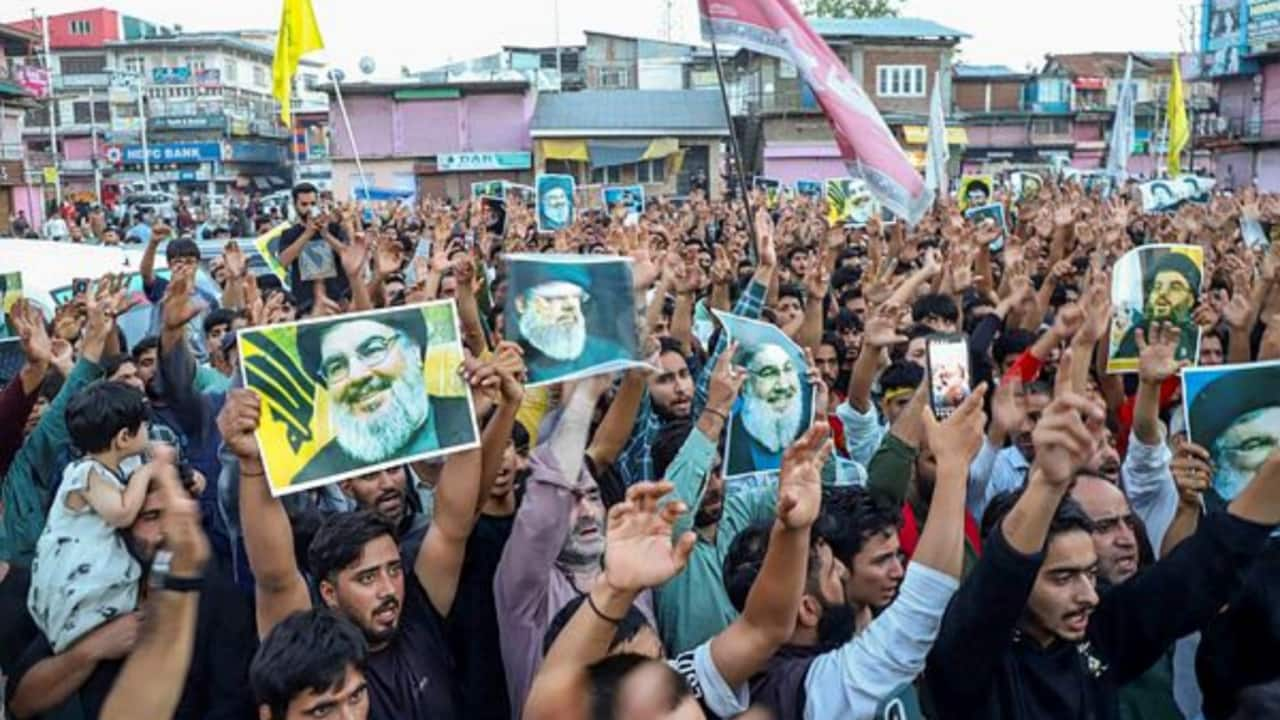 |
|
The death of Hezbollah leader Hassan Nasrallah in an Israeli air strike has ignited a wave of protests in Jammu and Kashmir, a region in India where elections are currently underway. These protests highlight the complex political landscape of Kashmir and the deep-seated sentiments among the Kashmiri population regarding regional and international conflicts.
Hundreds of protesters took to the streets in Kashmir Valley districts, holding up pictures of Nasrallah and chanting slogans denouncing Israel and the United States. The protests have underscored the strong support for Hezbollah among the Shia community in Kashmir, who see Nasrallah as a symbol of resistance against Israeli aggression. This solidarity with Hezbollah aligns with the long-standing support for Palestine among Kashmiris.
The protests have also drawn attention to the political climate in Kashmir, where elections are being held after a decade-long gap. Leading politicians, including former Chief Minister Mehbooba Mufti and Omar Abdullah, have suspended their election campaigns in solidarity with the protesters, highlighting the sensitivity of the issue within the context of the ongoing elections. This move suggests that the political landscape in Kashmir is intricately intertwined with regional and international events, and that local political dynamics are heavily influenced by perceptions of foreign policy and global conflicts.
The BJP, a key political party in India, has responded to the protests by accusing Mufti and other politicians of using Nasrallah's death for political gain. The BJP's response reveals the political divide within Kashmir and the broader political landscape of India. The protests demonstrate the complex interplay of local, national, and international issues in shaping political dynamics in Kashmir and highlight the ongoing tensions between different political factions.
The protests in Kashmir offer a glimpse into the intricate web of political, religious, and social factors that shape the region's landscape. The response to Nasrallah's death demonstrates the deep-seated sentiments of solidarity among Kashmiri Muslims and their unwavering support for Palestine. The suspension of election campaigns by prominent politicians further highlights the sensitivity of the issue and the potential for it to influence the political climate in Kashmir. The conflicting responses from the BJP underscore the political divides within Kashmir and the broader political context of India.
Source: Jammu and Kashmir Elections: Why has Hezbollah chief Nazrallah's death sparked protests in Valley?
